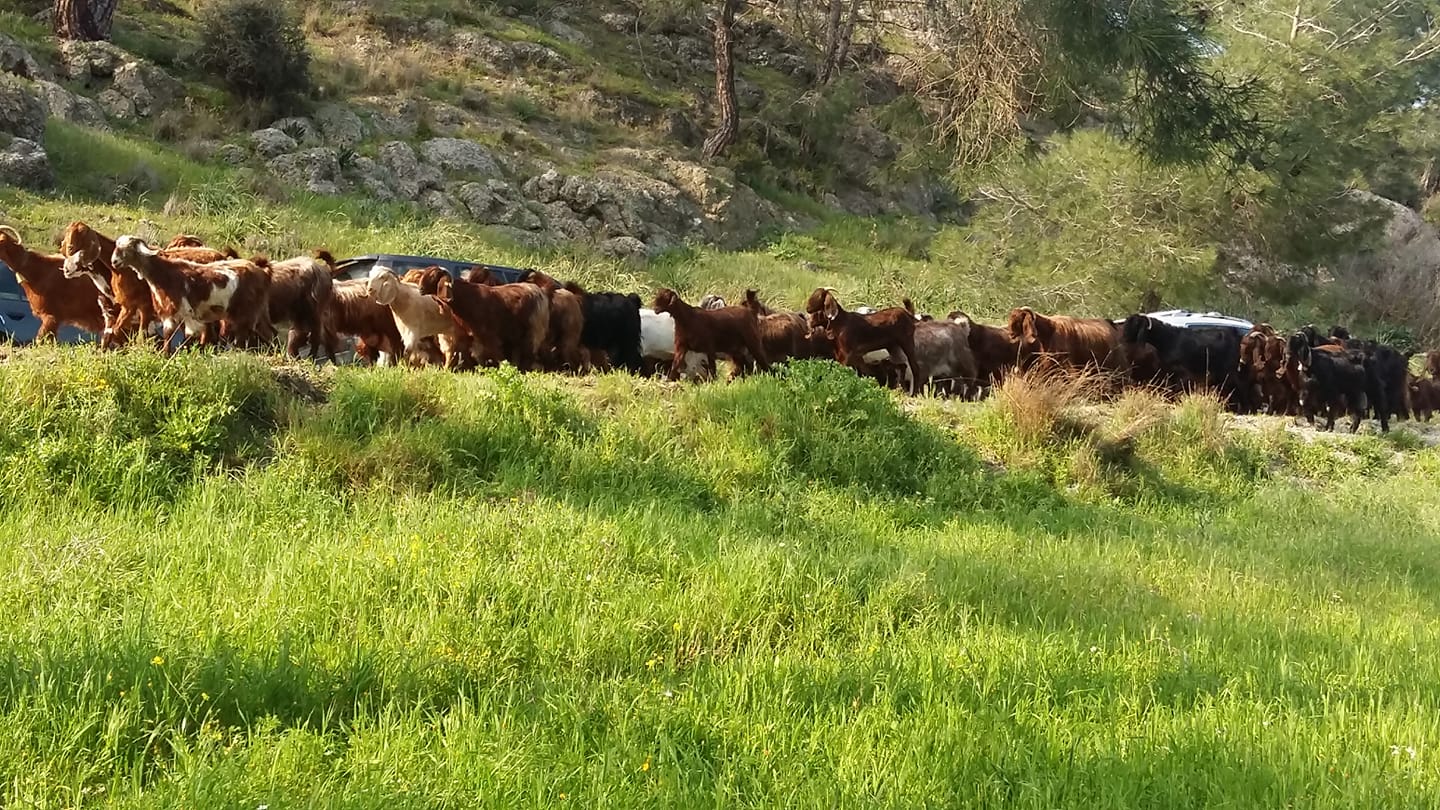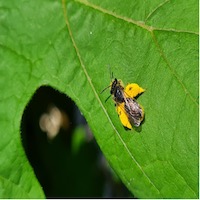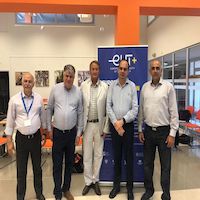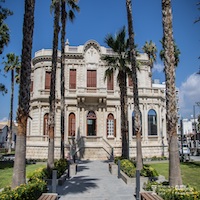MILI (EXCELLENCE/0421/0188) is a research project co-financed by the European Regional Development Fund and the Republic of Cyprus through the Research and Innovation Foundation. MILI project started in June 2022. The duration of the project will be 24 months with a total budget of 249.900,00 euros. The consortium includes the Cyprus University of Technology (coordinator), CyRIC (Cyprus Research and Innovation Center Ltd), the Frederick Research Centre, and the National Research Council of Italy (CNR).
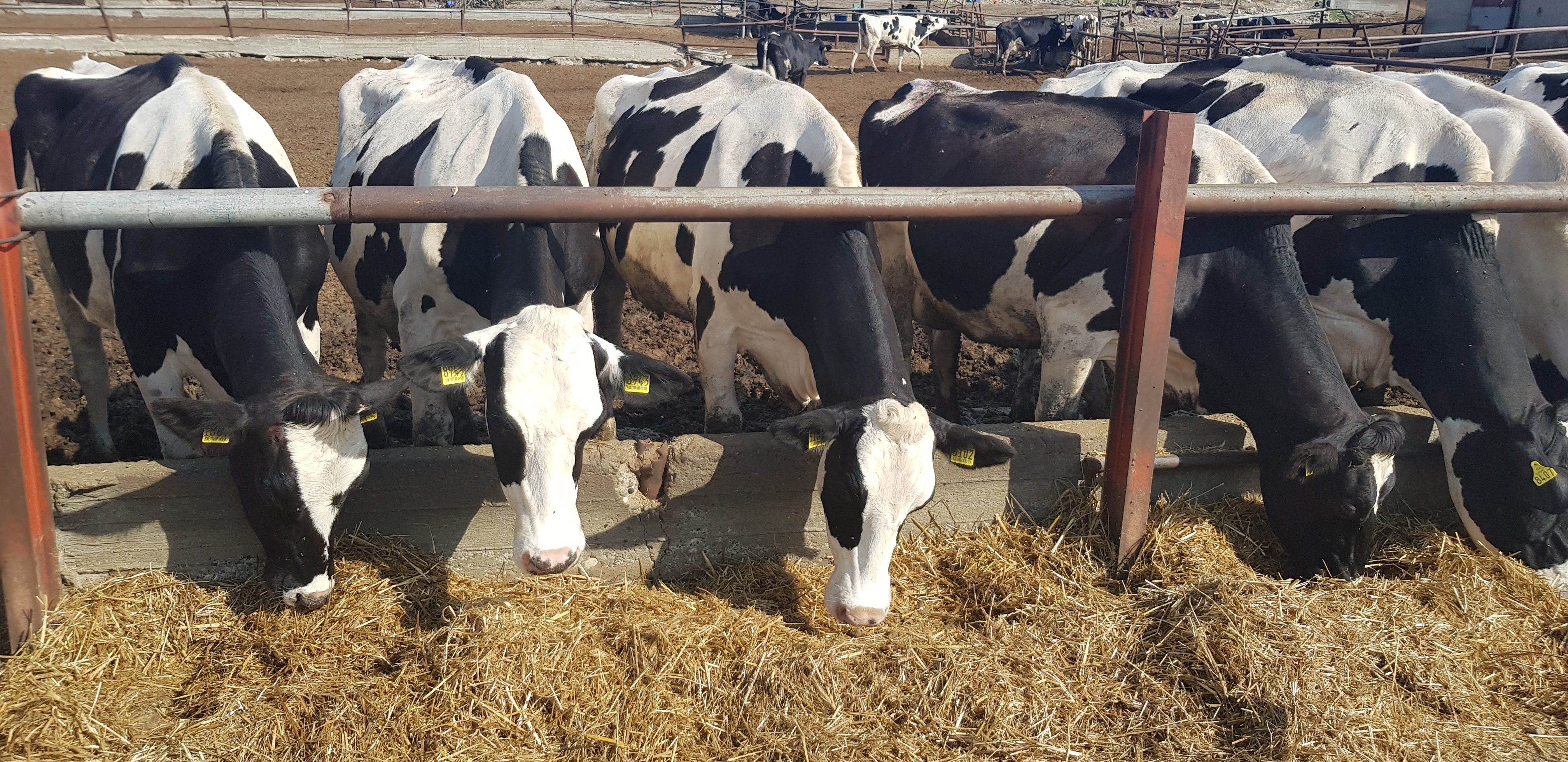
Milk and dairy products can be a source of contaminants that can have serious health implications. MILI is a research and innovation project that aims to find a rapid, cheap and effective way to detect milk contaminants. The main objective of the project is to design and develop a novel method and related prototype to simultaneously detect in less than 10 minutes a selected panel of common milk contaminants (Aflatoxin-M1 and 2 antibiotics, namely Penicillin and Enrofloxacin) at the farm level (before loading milk in the truck).
The technology is based on state-of-the-art biophotonics, combining customised biosensors, optical analysis, electronics and software modules.
Currently, the laboratory methods used by dairy industries for the detection of contaminants in milk, are time consuming (3-4 hours), expensive, require specialized staff and must be performed in the lab after receiving the milk from the different farms. If a small portion of the loaded milk is contaminated, then the contamination will spread to the whole truck load (wasted supply). Consequently, the financial losses to both farmers (penalties based on regulation for delivering contaminated milk) and the receiving dairy factories (reduced milk quantities therefore production impacts) are vast.
MILI-proposed technology will result to a cost-effective analytical system that can be used at farm level and generate results in less than 10 minutes, without the need of visiting the lab or using highly skilled personnel.
For further information about the project, please contact: Project Coordinator Dr Maria Aspri, Special Teaching Staff at Department of Agricultural Sciences, Biotechnology and Food Science, CUT, Cyprus. Email: maria.aspri@cut.ac.cy Tel: +357 25002617
Στο ΤΕΠΑΚ το αρχείο «Έλλης και Πανίκου Παιονίδου»
MILI (EXCELLENCE/0421/0188) is a research project co-financed by the European Regional Development Fund and the Republic of Cyprus through the Research and Innovation Foundation. MILI project started in June 2022. The duration of the project will be 24 months with a total budget of 249.900,00 euros. The consortium includes the Cyprus University of Technology (coordinator), CyRIC (Cyprus Research and Innovation Center Ltd), the Frederick Research Centre, and the National Research Council of Italy (CNR).

Milk and dairy products can be a source of contaminants that can have serious health implications. MILI is a research and innovation project that aims to find a rapid, cheap and effective way to detect milk contaminants. The main objective of the project is to design and develop a novel method and related prototype to simultaneously detect in less than 10 minutes a selected panel of common milk contaminants (Aflatoxin-M1 and 2 antibiotics, namely Penicillin and Enrofloxacin) at the farm level (before loading milk in the truck).
The technology is based on state-of-the-art biophotonics, combining customised biosensors, optical analysis, electronics and software modules.
Currently, the laboratory methods used by dairy industries for the detection of contaminants in milk, are time consuming (3-4 hours), expensive, require specialized staff and must be performed in the lab after receiving the milk from the different farms. If a small portion of the loaded milk is contaminated, then the contamination will spread to the whole truck load (wasted supply). Consequently, the financial losses to both farmers (penalties based on regulation for delivering contaminated milk) and the receiving dairy factories (reduced milk quantities therefore production impacts) are vast.
MILI-proposed technology will result to a cost-effective analytical system that can be used at farm level and generate results in less than 10 minutes, without the need of visiting the lab or using highly skilled personnel.
For further information about the project, please contact: Project Coordinator Dr Maria Aspri, Special Teaching Staff at Department of Agricultural Sciences, Biotechnology and Food Science, CUT, Cyprus. Email: maria.aspri@cut.ac.cy Tel: +357 25002617

